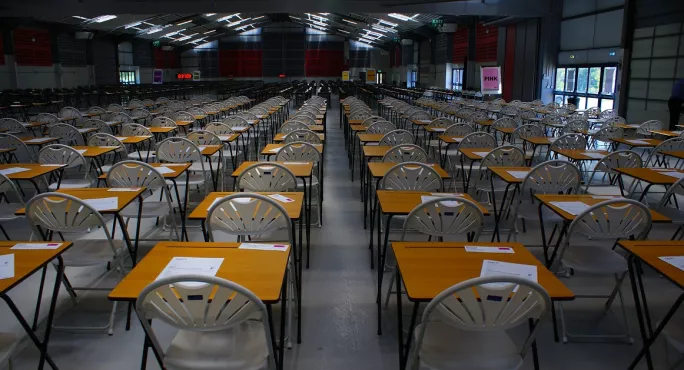Students who fail their maths and English GCSEs should be offered functional skills courses instead of compulsory resits, the chair of the Education Select Committee is expected to say in a speech on Monday.
At a panel event organised by the Centre for Social Justice, the Learning and Work Institute and the Open University in London, Robert Halfon will say literacy and numeracy are the bedrock of academic and vocational success, adding: “But rather than swallow valuable resources by insisting on retakes for those who fail English and Maths, with failure rates of over two thirds in each case, we should be offering these individuals functional skills courses to improve their basic literacy and numeracy.”
‘Crown jewel’
It comes after the former skills minister asked for the Education Select Committee to see evidence that English and maths resits were damaging students mental health based on comments from the chair of the Association of College’s (AoC) Mental Health Policy Group Stuart Rimmer who spoke to an inquiry into young people’s mental health provision on Tuesday.
In a wide-ranging speech, Halfon will stress that if the government is going to continue to “lavishly fund” universities then they much specialise in areas where there are skills gaps.
He will also say FE colleges should be better supported and incentivised to deliver intermediate and higher technical courses adding that he believes degree apprenticeships could be the “crown jewel in a revamped technical offering”.
A call to arms
The panel will consider the need for a “skills revolution” in further and higher education in order to achieve social justice.
The chief executive of the Learning and Work Institute Stephen Evans, who is on the panel, said it was time for a call to arms to tackle the UK’s skills challenge. He added: “Nine million adults have low literacy or numeracy, and one million fewer adults are improving their skills each year than in 2010. Growth in apprenticeships is welcome, but we need everyone to be able to access one.”
Head of education policy for the Centre for Social Justice and fellow panelist James Scales said technical education was a pale shadow of its academic cousin, adding: “It is vital that we unlock technical education’s enormous potential. Supercharged by technological innovation, the world economy is redefining the contours of economic success and we must find a secure place in this new terrain.”
Want to keep up with the latest education news and opinion? Follow Tes FE News on Twitter, like us on Facebook and follow us on LinkedIn




